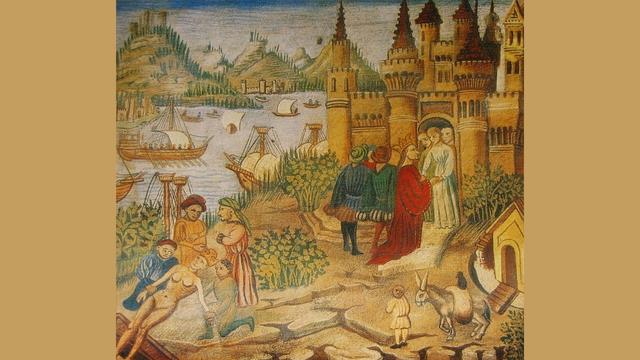Several modern ideologies have tried to undermine the role of the teachers. The Tai Ji Men case is one of their poisonous fruits.
by Marco Respinti*
*Introduction to the hybrid webinar “Persecuting Spiritual Teachers: The Tai Ji Men Case,” co-organized by CESNUR and Human Rights Without Frontiers on October 8, 2022, after the World Teachers’ Day (October 5).

The World Teachers’ Day is an annual day of observance established in 1994 by two United Nations agencies, the United Nations Educational, Scientific and Cultural Organization (UNESCO) and the International Labour Organization (ILO) to commemorate the signing of the 1966 Recommendation, Concerning the Status of Teachers. That Recommendation relates to a variety of subjects, ranging from working conditions to the continuing education of teachers.
Let me then briefly underline the crucial importance of teachers for a virtuous society. In fact, no one should under-evaluate it.
Teachers are key elements in the transmission of values that sustain a community. In fact, teaching and schooling mean not only communicating a set of notion but offering a particular aid to the general educational task needed in any human community, working with families in a subsidiary way. In this regard, teachers work side by side, at least implicitly, with families, and should never contrast them in their guiding principles. As families are the fundamental and foundational cells of a society, teachers working with families help families to implement their vocation.
Teachers have thus great responsibilities toward the rising generation. Besides transmitting notions and values, teachers serve as great instruments to fortify and pass down all those elements that form the cultural identity of a human community.
At this point, I just need to cite the dreadful case of the Cultural Revolution (1966–1976) in Communist China, a brutal experiment of social engineering of a gnostic brand that was terminated only by the very death of Mao Zedong (1893–1976). One of the key tenets of the Cultural Revolution was the literal overturning of all that was pivotal in Chinese society. It is in fact from this ideological program that the Cultural Revolution got its grand, all-encompassing name.

So, for example, workers became managers and vice versa, and, notably, students sat on pulpits while teachers went down to the desks in the classroom. The clear attempt was that of destroying all that was known in China, labeled as old and reactionary also when it was not, and to rebuild a world from the beginning. Most of that attempt was achieved, and what was not achieved resulted in a number of deaths that scholars evaluate up to 20 millions. Again, the destruction of the normal relationship between teachers and students was strategically crucial to that ominous project of total subversion.
So much for the preciousness of teachers. But teachers have also their dark side. French philosopher Paul Ricœur (1913–2005), in his book “De l’interprétation. Essai sur Sigmund Freud,” published in 1965, coined the expression “school of suspicion” to describe the collective cultural aim of such famous authors as Karl Marx (1818–1883), Sigmund Freud (1856–1939), and Friedrich Nietzsche (1844–1900).

While proclaiming very different and even opposite philosophies, in Ricœur’s view the ultimate attempt of Marx, Freud, and Nietzsche was to teach that reality itself cannot be trusted and fundamentally lies, and that all existing authorities are false. As “masters” (or teachers) “of suspicion,” their credo was not the legitimate critique of existing authorities for their mistakes and misdeeds, but the basic delegitimization of the very concept of authority in itself.
From the 1960s, the “school of suspicion” has gained importance in the West. Many teachers in schools, even today, still work on its premises, causing serious damage among students, and through students to the whole society and cultural identity of their countries.
Our topic today concerns spiritual teachers and the persecution they often suffer. As all teachers, also spiritual teachers are essential to the wellbeing of a society. Above all, it is not the role of the state to decide the role spiritual teachers should play or not play in a spiritual community.
Tai Ji Men is a spiritual group that works for the wellbeing of the whole society, indeed of the whole world. Its Grand Master, or Shifu, is Tai Ji Men’s spiritual teacher, i.e. its central teaching authority.

The misguided effort by Taiwanese bureaucrats who try to prevent Tai Ji Men’s Shifu from fulfilling his role and vocation, for ideological reasons, teaches a cautionary tale to everyone. Spiritual teachers are essential to our society. But they can only fulfill their role when they are allowed to operate freely.
Source: Bitter Winter

